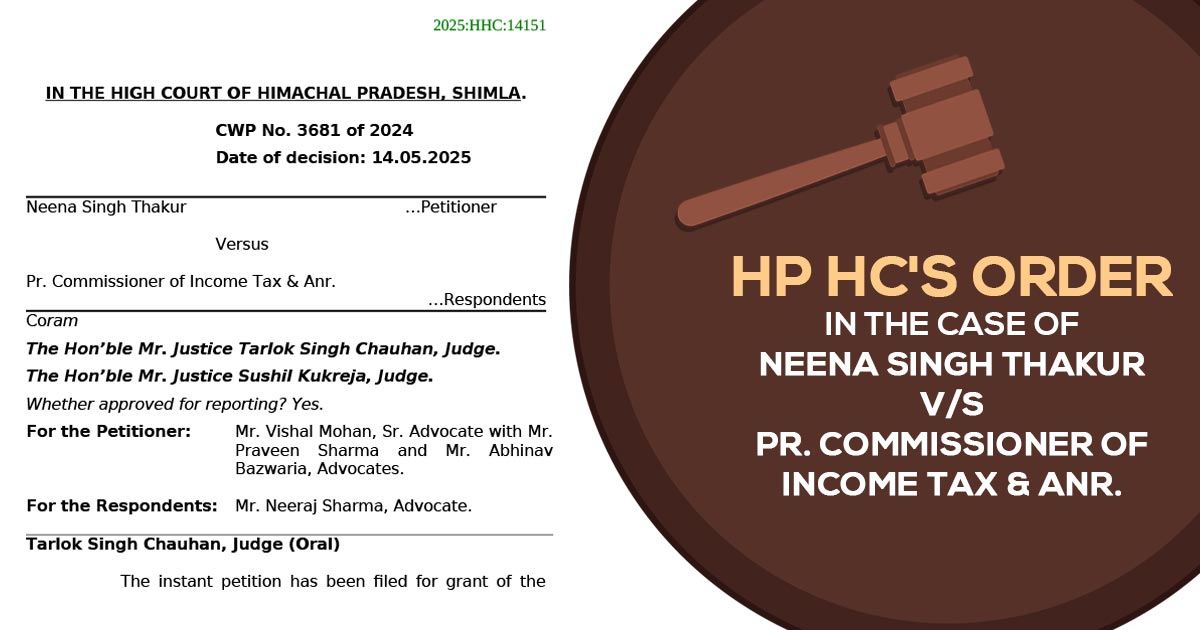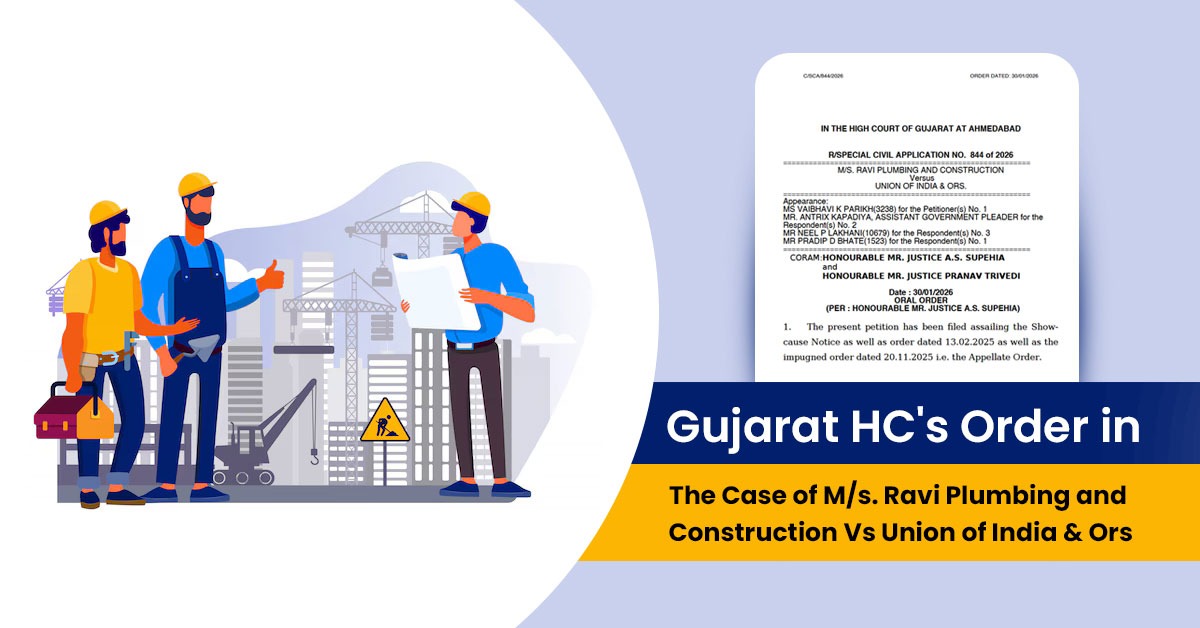
The Himachal Pradesh High Court ruled that the Assessing Officer cannot issue a notice under Section 148 of the Income Tax Act, 1961, for initiating reassessment proceedings without providing valid reasons.
“Section 148 enables the Assessing Officer to initiate reassessment proceedings where income chargeable to tax is believed to have escaped assessment”.
Justice Tarlok Singh Chauhan & Justice Sushil Kukreja: “The Assessing Officer needs to realise that notice under Section 148 does have serious civil or evil consequences and cannot be passed so lightly and reasons for the same have to be recorded in the order itself.”
Facts
U/s 148A(d) of the Income Tax Act, 1961, the applicant, Neena Singh Thakur, was served with a show cause notice alleging that she has not undergone an assessment for the AY 2017-18.
As per the income tax department, the applicant concerning the immovable property has not disclosed the data, which he had purchased and the value of which was ₹1.21 crores. TDS Returns has validated the same which the applicant has filed.
A response has been furnished by the applicant on the allegations, along with the needed documents. She cited that she has revealed all the transactions, and the property value was Rs 1,31,63,935 and not ₹1.21 crores.
Despite that, the applicant furnished the response, a notice u/s 148 of the Income Tax Act has been issued via the assessing officer, and cited that the case is at a preliminary phase. He mentioned that the applicant’s contentions are unacceptable since they mandated a detailed analysis.
The applicant is dissatisfied with the notice issuance and therefore the applicant submitted a writ petition to the HC asking to quash the notice from the Income Tax Department.
The Findings
The court said that no regulatory requirement is there that obligates every inquiry under section 148A to lead to the issuance of notice u/s 148. Instead, the assessing officer must acknowledge the material on record along with the taxpayer’s response to discover whether or not a notice is to be issued.
By only citing that “at the preliminary stage, the contention of the assessee is not acceptable and requires detailed examination.” the Assessing Officer cannot avoid its obligation, the court cited. It also mentioned that u/s 148 held civil outcomes and hence it could not be issued without furnishing proper reasons for initiating the reassessment proceedings.
The Supreme Court in S.N. Mukherjee V Union of India, 1990, ruled that delivering proper reasons is essential as it:
- Guarantees consideration by the authority
- Introduces clarity in decisions
- Minimise the chances of arbitrariness in decision-making
Hence, the court held that proper justice was not served due to the failure to furnish reasons. If an order lacks precise reasoning, it hampers the court’s ability to function effectively. The right to reason is an essential component of an effective judicial system.
Supreme Court in Pankaj Garg vs. Meenu Garg & Anr. (2013) ruled that “an order which does not contained any reason, is no order in the eyes of law.”
The order passed by the Assessing Officer was set aside by the court due to the absence of proper reasoning, and the case was remanded for fresh computation following the law. The court held that the Assessing Officer must record detailed reasons if they believe that issuing a notice under Section 148 is warranted.
| Case Title | Neena Singh Thakur V/S Pr. Commissioner of Income Tax and Anr |
| Case No. | CWP No. 3681 of 2024 |
| Counsel For Appellant | Mr. Vishal Mohan, Sr. Advocate with Mr. Praveen Sharma and Mr. Abhinav Bazwaria, Advocate |
| Counsel For Respondent | Mr. Neeraj Sharma, Advocate |
| HP High Court | Read Order |









